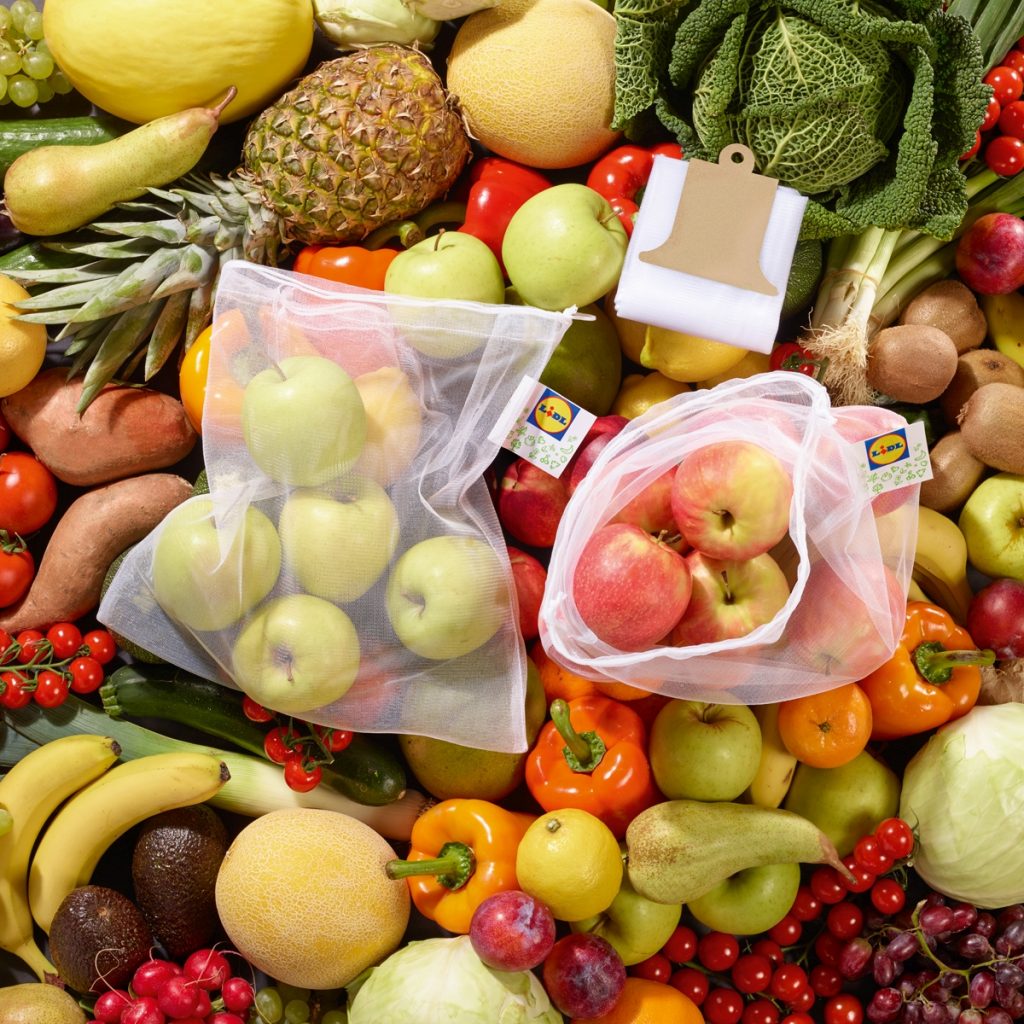In keeping with the sustainable business motto “For a better tomorrow”, Lidl Serbia has made changes in its range to nurture a responsible attitude towards nature. Consumers can expect several novelties: a reusable bag for fruits and vegetables, the abolition of disposable plastic and the reduction of plastic packaging.
As a socially responsible company, when making business decisions, Lidl Serbia takes into account social and environmental factors. Lidl says that these are the first measures that the company will implement towards reducing the use of plastics, which are directly related to two of the five strategic pillars of responsibility – range and environmental protection.

REUSABLE BAG FOR FRUIT AND VEGETABLES
Once shoppers started using this kind of bag for fruits and vegetables in Lidl produce isles, Lidl Serbia has become the first retail chain in Serbia to offer its consumers an alternative option. A packet containing two bags can be purchased for 69.99 dinars. These bags are highly practical as you can wash them at 30 degrees Celsius in the washing machine. They can carry up to 5 kg of products, so one bag is sufficient for several purchases.
ABOLISHING THE USE OF DISPOSABLE PLASTICS
Plastic cutlery and plastic cups can no longer be found in Lidl stores, while q-tips, from Lidl’s Cien and Lupila brands, are now made of paper, not plastic. In this way, the company wants to abandon the practice of using disposable plastic, which is considered a major polluter of the environment, and encourage the use of alternatives.
“We believe that large companies have a great impact on sustainable development and that they should use their resources to educate the community and implement good practices”
SMALLER PACKAGING – SAME QUANTITY
The packaging of certain products from the Lidl range of nuts and dried fruits from the Alesto brand has been reduced by about 20%, while one packaging still contains the same amount of product. In this way, Lidl is not only using less packaging material but is also reducing CO2 emissions because due to the smaller size of the packaging, it is possible to transport more packaging on one pallet. These products have a clear label stating that the packaging has been reduced.
Lidl Serbia is part of the Schwarz Group and follows the REset Plastic strategy for responsible management of plastics, which focuses on five areas of activity – avoiding the use of plastics, plastics recycling and plastics removal from nature and encouraging environmental innovation and education in this area.
With this strategy, the company has set two goals regarding the plastic packaging used by Lidl brands that it should accomplish by 2025 – reduction of the use of plastic by 20% and 100% recyclable packaging.
“We believe that large companies have a great impact on sustainable development and that they should use their resources to educate the community and implement good practices. We have therefore decided to offer consumers a green alternative; that is a reusable bag for fruits and vegetables which can now be found in Lidl produce isles. Furthermore, we have removed five disposable plastic products from the offer and reduced individual packages of Lidl brands, while not reducing the product quantity,“ Nikola Balaban, Executive Director of the Procurement Department of Lidl Serbia, explains.
In addition to these novelties and concerning the company’s attitude towards nature, Lidl Serbia points out that, when forming the product range, they pay special attention to the use of raw materials from sustainable sources.
“This is just the beginning of the measures we will carry out related to our product range. Like the Schwarz Group on a global level, Lidl Serbia is constantly setting new and higher goals for itself, which are stipulated in our Statements of Intent, displayed on our official website. Each statement refers to one raw material or group of raw materials, such as cocoa, tea, coffee or fish procured from sustainable farming, and contains detailed and clear tasks and objectives, as well as deadlines. These are our guidelines in terms of responsible procurement operations, while the range of raw materials we will use will expand.
I would like to point out that I believe that we will motivate consumers to work together with us on protecting our environment,” Mr Balaban concluded.